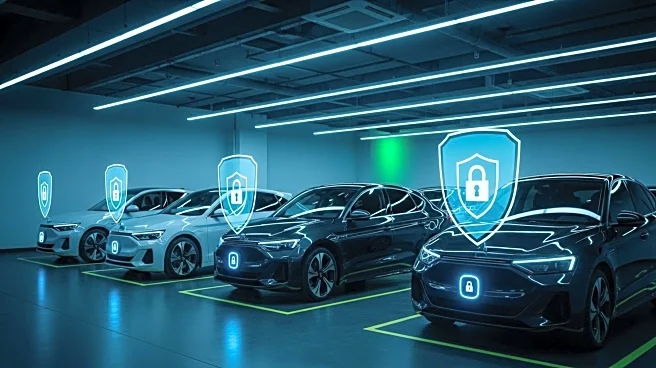What is the story about?
What's Happening?
Fleet owners are being advised to prioritize cybersecurity as cyberattacks become increasingly sophisticated and prevalent. According to a recent report, global cyberattacks have surged by 44% in the past year, with threat actors using generative AI to enhance disinformation campaigns and deploying advanced infostealer malware. The report highlights that 95% of exploits target pre-existing vulnerabilities, emphasizing the importance of diligent patch management. Fleet operations face a wide range of risks, including back-office functions, freight fraud, cargo theft schemes, and on-road risks as hackers target connected vehicle systems. The threats range from ransomware and data breaches to remote hijacking of vehicles, and even insider risks cannot be ignored.
Why It's Important?
The increasing sophistication of cyberattacks poses significant risks to fleet operations, which are already navigating challenging economic conditions. Cybersecurity is crucial for protecting sensitive data and ensuring operational stability. Failure to address these vulnerabilities could lead to financial losses, reputational damage, and operational disruptions. As fleets adopt more technology to improve efficiency, they must also invest in robust cybersecurity measures to mitigate these risks. The potential impact on the transportation industry is substantial, affecting everything from logistics to customer trust.
What's Next?
Fleet owners are encouraged to develop comprehensive cybersecurity strategies to reduce exposure to cyber threats. This includes regular patch management, employee training, and investing in advanced security technologies. As cyber threats continue to evolve, fleets must remain vigilant and proactive in their cybersecurity efforts. Collaboration with cybersecurity experts and industry peers may also be beneficial in staying ahead of emerging threats.
Beyond the Headlines
The rise in cyberattacks highlights the ethical and legal responsibilities of fleet owners to protect customer data and ensure safe operations. As technology becomes more integrated into fleet management, the cultural shift towards prioritizing cybersecurity is essential. Long-term, this may lead to increased regulatory scrutiny and the need for industry-wide standards to safeguard against cyber threats.















